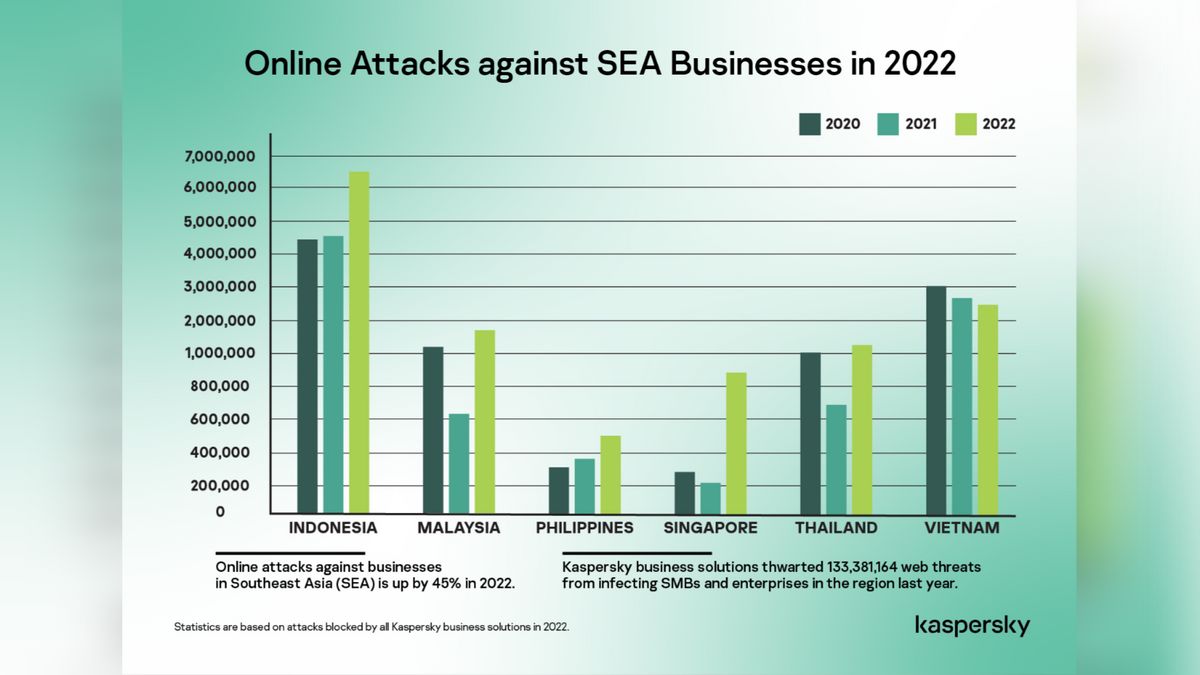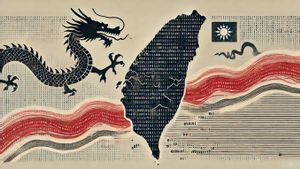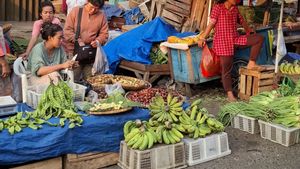JAKARTA - The year 2022 is a busy year for cybercriminals in targeting companies in Southeast Asia (SEA). Kaspersky's latest data shows a surge in web threats that has been successfully blocked by the company by 45 percent.
Web-based threats deliberately created by cybercriminals, or online threats, usually refer to attempts to download malicious objects from malicious/infected websites, including sites with user-committed content (such as forums), as well as compromised legitimate resources.
The causes of the emergence of web threats are usually made possible by the vulnerabilities of end users, web service developers/operators, or web services themselves. But apart from that, the consequences of the web threat can be detrimental to both individuals and organizations.
During the peak of the pandemic in 2020, Kaspersky prevented 10,200,817 web attacks that infected businesses in Southeast Asia. The number decreased slightly in 2021 to 9,180,344. However, it jumped again in 2022 to 13,381,164.
In this case, Singapore became the country with the largest surge in web threats, which was threefold (329 percent) or 889,093 attacks, compared to 2021 which was only 207,175 incidents.
The increase in the threat of this web also occurred in four other Southeast Asian countries, including Malaysia (197 percent), Thailand (63 percent), Indonesia (46 percent), and the Philippines (29 percent).
Vietnam has experienced a slight decline (-12 percent) after recording only 2,485,168 web threat incidents last year compared to 2021 of 2,822,591.
The large Southeast Asia region, however, needs more help in building their ability to protect its business from cyberattacks. As 2023 will be the first year of the border and the market reopening completely, we encourage companies in the region to allocate their budget and resources to strengthen its cyber defense from increasing attacks targeting their networks, said Yeo Siang Tiong, General Manager for Southeast Asia in Kaspersky.
The English, Chinese, Japanese, Arabic, and French versions are automatically generated by the AI. So there may still be inaccuracies in translating, please always see Indonesian as our main language. (system supported by DigitalSiber.id)













